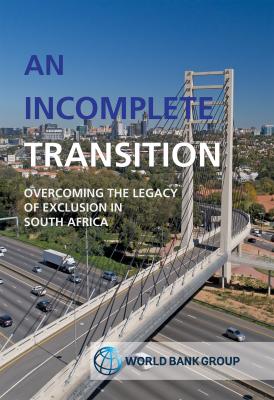An incomplete transition: Overcoming the legacy of exclusion In South Africa
Synopsis
In preparation for its 2019–2022 Country Partnership Framework with South Africa, the World Bank Group has drafted a Systematic Country Diagnostic, which forms the basis of this book. Its aim is to strengthen understanding of the constraints in achieving two goals in South Africa: to eliminate poverty by 2030, and to boost shared prosperity. These goals are aligned with South Africa’s Vision 2030 in the National Development Plan. This book is the result of consultations and conversations with the National Planning Commission, government departments, the private sector, young South Africans, and other stakeholders. It identifies five broad policy priorities: to build South Africa’s skills base; to reduce the highly skewed distribution of land and productive assets and strengthen property rights; to increase competitiveness and the country’s participation in global and regional value chains; to overcome apartheid spatial patterns; and to increase the country’s strategic adaptation to climate change and water insecurity. The key obstacle to growth, investment, and jobs that has been identified is ‘the legacy of exclusion’. Undoing this is a long-term process, but renewed commitment by the political leadership to strengthen institutions and rebuild the social contract present an enormous opportunity in achieving progress towards South Africa’s Vision 2030, and this book suggests ways to accomplish this aim.
Chapters
-
An incomplete transitionOvercoming the legacy of exclusion in South Africa
Downloads



